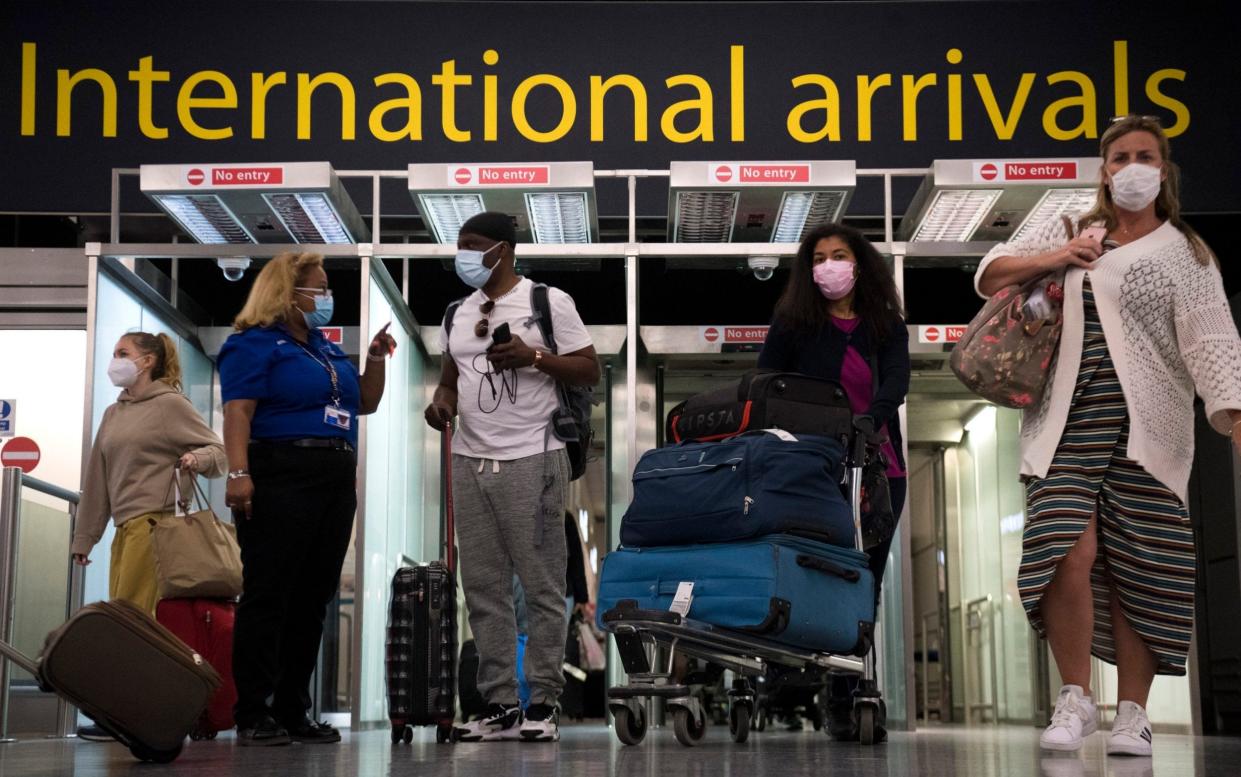Amber list discriminates against young people, say airlines

The Government has been accused of discriminating against the young by keeping countries on the amber list to boost vaccination take-up.
Leading industry figures said amber countries including France, Italy, Greece and the US should be on the Government's green list because their infection rates, vaccination levels and testing capabilities were on a par or better than destinations already on it.
They said that by keeping them off the green list, the Government was denying quarantine-free foreign travel to young unvaccinated Britons, with only older double-jabbed adults able to visit amber countries from next Monday without having to self-isolate for 10 days on their return.
The "unfairness" to younger Britons has been raised by major airlines in a letter to Grant Shapps, the Transport Secretary, in which Airlines UK said young people had "as much right and reason to travel for work, leisure, to see friends and family and for education purposes as older groups".
It comes as concerns grow that the Covid vaccination programme is hitting a "demand ceiling" among the more hesitant young as the daily number of people getting their first jab has almost halved.
Paul Charles, who led the Quash Quarantine campaign and is the chief executive of consultancy The PC Agency, said that could be why ministers were restricting the number of countries on the green list.
"There are many destinations which deserve to be on the green list and which are desperate for UK travellers this summer to help their economies," he said. "So why is the Government holding back?
"It could be because they want to ensure many more young people are vaccinated before they can travel seamlessly. But it is doing damage to relations with other countries around the world who cannot fathom why they are not on the green list even though they should be."
In its letter to Mr Shapps, Airlines UK said there was a "genuine unfairness issue" as there was not "anything in the published data that would prevent a large number of European and other destinations, including the United States and Caribbean, from going green".
Only vaccinated older adults will be able to travel to such destinations from Monday under the Government's rule change to let fully jabbed Britons holiday in amber countries without having to quarantine on their return.
By contrast, young Britons under 40 can only go to a limited green list of 27 destinations, of which only the Balearic islands of Ibiza, Mallorca and Menorca, Madeira, Malta, Gibraltar and Israel are viable holiday destinations.
But there are fears that Ibiza, Mallorca and Menorca – popular among young partygoers – could be returned to the amber list because of surging infection rates.
"Analysis suggests that exempting fully vaccinated passengers from quarantine would today cover only 60 per cent of the typical UK traveller mix, leaving a substantial proportion of particularly younger people unable to take advantage," said Tim Alderslade, the chief executive of Airlines UK.
Yet the data for dozens of other countries justified them turning green when the Government publishes its updated list later this week.
Airlines UK said one of the key government metrics for green list status – a case rate per 100,000 of the population – showed 21 European countries below the benchmark, including France (43), Italy (17.34), Germany (11) and Croatia (26). The US was at 33, compared with the UK's 267.1.
"UK citizens are at less risk of catching the virus now in most other countries than they are if they stayed at home," said Mr Alderslade.
Government figures also showed fewer than one in 200 arrivals from EU countries and the US testing positive for Covid, and none with variants.
"If, based on current data, many more amber countries do not go green on July 15, we would question when this might ever be possible," said Mr Alderslade.

